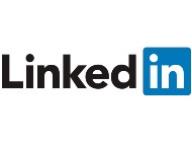Faculty News
—
Professor Stephen Figlewski weighs in on the practice of shorting stocks
—

Excerpt from CCTV -- "There is this natural bias in the market to buy stock, to own stock, to want stock prices to go up. And nobody likes receiving bad information even if it's true."
Faculty News
—

Excerpt from CCTV -- "There is this natural bias in the market to buy stock, to own stock, to want stock prices to go up. And nobody likes receiving bad information even if it's true."



















